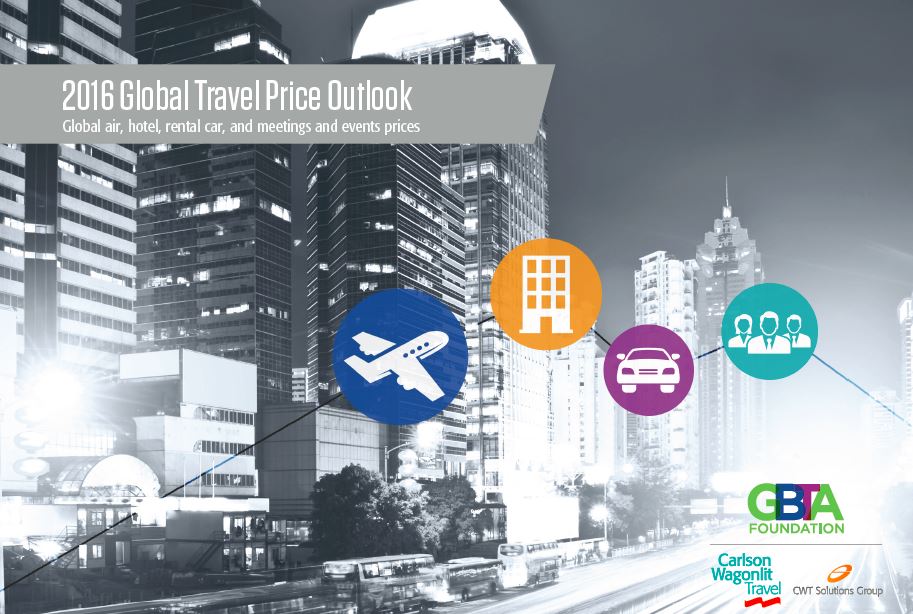Hotel Hot Spots Provide Clues to U.S. Economic Activity
Earlier today, the GBTA Foundation and Carlson Wagonlit Travel (CWT) issued their 2016 Global Travel Price Outlook, which projects how demand, currency and other factors will impact prices for air travel, hotels, ground transportation, and meetings and conventions around the world.
As we were digging through the data, we noticed something very interesting. Underlying the U.S. pricing outlook were a set of numbers regarding projected increases to hotel prices in U.S. cities that were somewhat surprising. Some hotel prices were projected to increase by 12 percent, while others were barely keeping pace with inflation.
When you start to look at the 2016 metro market forecast for hotel prices, a pattern seems to emerge – that activity around the tech and entertainment industries is driving significant price hikes.
- San Jose – 12 percent increase
- San Francisco – 8.8 percent increase
- Los Angeles – 7.8 percent increase
- Boston – 7.7 percent increase
- Seattle – 5.5 percent increase
Hotel prices, by contrast, are projected to be much more stable in larger cities that are home to a more diverse set of industries including government, agriculture, energy and finance.
- Dallas – 5.2 percent increase
- Houston – 3.0 percent increase
- Chicago – 2.9 percent increase
- Washington, DC – 2.0 percent increase
- New York – 1.0 percent increase
To be sure, this is an area that clearly merits additional study and attention. We don’t have data on Austin, San Diego or Raleigh-Durham, three traditional tech centers. It would be interesting to see if they follow similar trends, or if they break from the pattern.
Nevertheless, looking at projected increases in hotel prices can give us clues as to where economic activity is taking place, and where business travelers are heading to close their next big deal.

